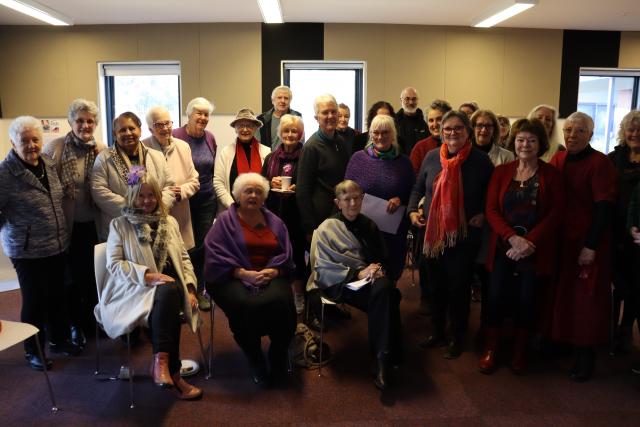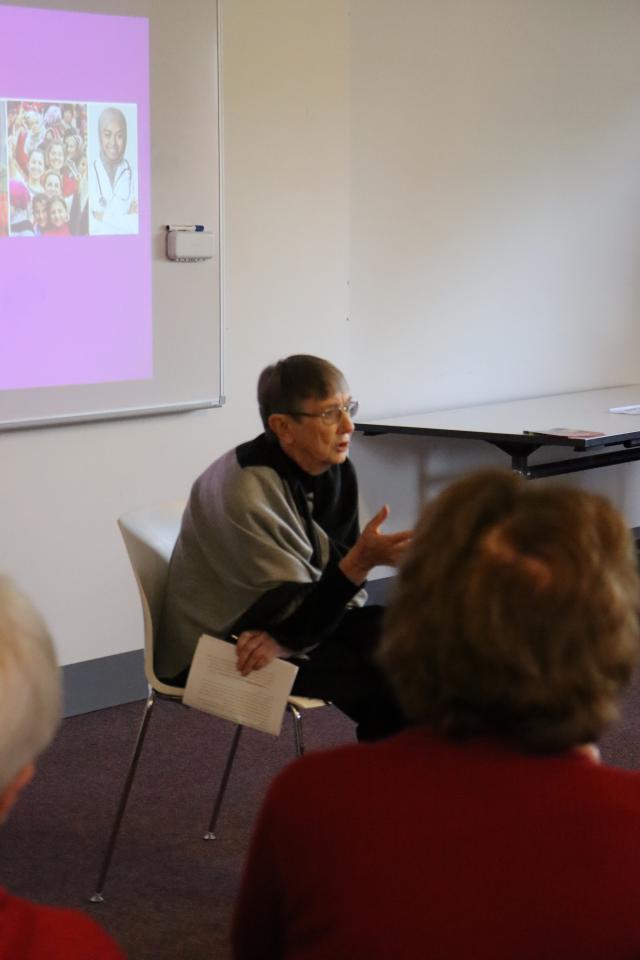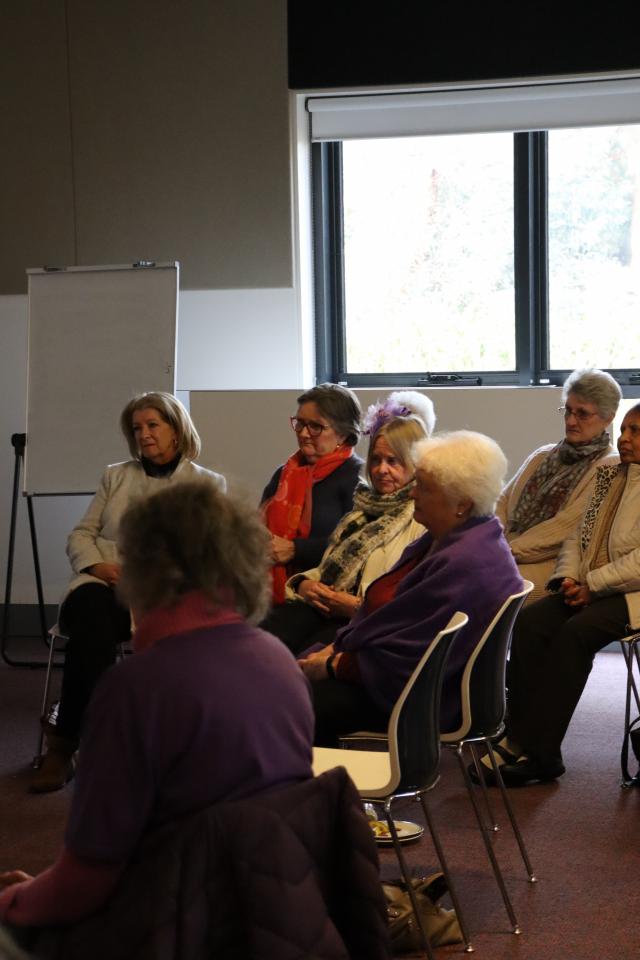
By Mikayla van Loon
A local advocacy group came together this week for Refugee Week to highlight the need for change.
Casey Grandmothers for Refugees gathered earlier this week in Kilsyth to both celebrate and commemorate World Refugee Day on Tuesday 20 June.
In an effort to acknowledge the continued suppression and plight of refugees, as well as discuss the current situation, the group invited Sister Brigid Arthur from the Brigidine Asylum Seekers Project (BASP) to speak about her work housing and supporting displaced persons.
“It’s really important that the community becomes aware of what is actually happening to asylum seekers in particular in Australia today,” Sister Brigid said.
“What I’m passionate about is how asylum seekers have been vilified and treated inhumanely at an official level by successive governments and hopefully that’s changing and hopefully we can enshrine some of those changes in new laws so it doesn’t happen again.”
Casey Grandmother’s coordinator Prue Licht said despite the new Labor government making some great headway when it comes to visa changes, there’s a long way to go.
“[The government is] in the process of changing the visa status for a very large group of people but there’s still a lot of people left behind, whose visa status is still uncertain, and they still have no certainty,” she said.
“There are still people in [Papua New Guinea], some who have been there for nine or ten years, there are not many but there are still some people in PNG.”
Despite talk of all remaining asylum seekers on Nauru being resettled by the end of June, Prue said there is still a backlog of people the government hasn’t yet assisted.
“There’s a legacy caseload, they are the people who came between 2012 in July 2013. Kevin Rudd on July the 19th 2013 said ‘nobody who comes by boat would ever be able to settle in Australia’, and that still holds today,” she said.
On behalf of the home affairs minister, agriculture minister Murray Watt told Guardian Australia in May that Labor “would’ve preferred that the legacy caseload have been dealt with well before now, but it wasn’t”.
At a cost to the Australian taxpayer of $350 million per year, the detention facility on Nauru will be kept open as a deterrent but with the expectation that no one will be sent there.
“If there’s a place where that policy can be re-started, it will be sometime in the future. We will have a change of government or we will have a change of people arriving and that will happen again,” Sister Brigid said.
Prue said around 450 people are currently held in community detention centres in Australia, with hundreds of people arriving by air regularly in search of safety.
Working as a small team of volunteers, BASP are currently helping to accommodate 300 people either through houses they rent or through individuals paying someone else’s rent.
Sister Brigid said the rest of their work is dedicated to supporting these individuals and families with food, legal assistance, English teaching, job applications and financial support.
“The government doesn’t give any actual income to people seeking asylum,” she said.
“If they can work, then it’s good to help them get a job but if they can’t work for all sorts of reasons, then they need not only a roof over their head, they need some minimal, at least, money to survive on.”
With the cost of living rising, Sister Brigid said at the moment the situation is “pretty dire” as people try to make ends meet on very little.
Moving forward, Sister Brigid said employment has to be made a focus for BASP and its volunteers because it is one of the most freeing aspects of living independently.
“The biggest need I think in our program, besides what we’re doing, is the need to intensify the employment stream.
“We do a bit, we try to do as much as we can, but we need more people working on employment, because it’s all very well to say there are a lot of jobs out there, but they’re not automatically available to our folks.”
While World Refugee Day is often a celebration of the strength and resilience of refugees and asylum seekers, it is also an opportunity to engage in conversation and build advocacy networks.
Sister Brigid said by speaking at events like the one hosted by Casey Grandmothers broadens the scope of what groups of people can do when working together.
Her message to others is “use your voice”, something that was echoed by Prue, particularly when it comes to advocating for change in parliament.
“If you really do feel passionate, use your voice and in particular, visit local MPs and tell them that you just want to see change and you want change to things like permanently shut down detention centres,” Sister Brigid said.
“The more people who ring their MP, who write to the immigration minister, to the home affairs minister, write to these people and tell them how you feel whether and you believe that people who are there should be allowed to stay,” Prue said.
An appropriate income support stream and the public perception of asylum seekers and refugees are two other things Sister Brigid would like to see fought for.
“We [need to] counter [vilification] by being humane and we don’t speak in a way that makes people think they have to fear people who are coming here from war torn countries or places where they are persecuted, they’ve been through enough.”








